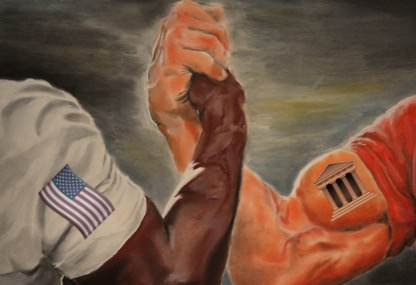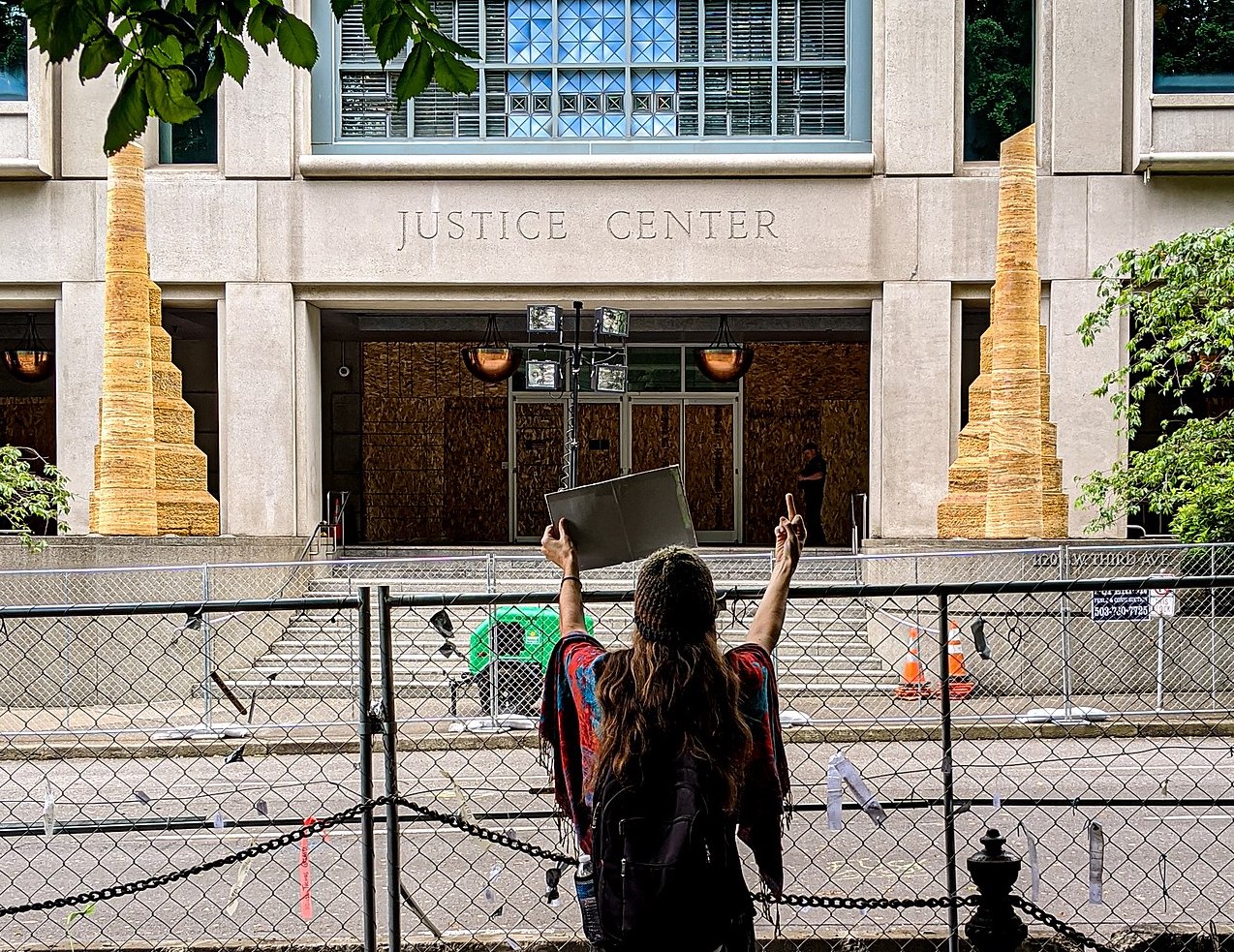How “German” Were the Progressives?

Contrary to James Poulos and Glenn Ellmers writing in The American Mind, I did not produce a “mixed review” of John Marini’s excellent study of the American administrative state. I extolled Marini’s examination of our increasingly unaccountable centralized state and was especially drawn to his focus on Congress’s role in this misfortune. But I part ways with Marini on two points, which obviously have a deep meaning for the Claremont Institute. One, I think Marini’s assumptions about German philosophers being critical to linking the Progressivist ideology to the creation of an American administrative state are problematic; and two, I see no evidence that Progressivism and the administrative regime it encouraged incurred the disfavor of believers in natural rights, as interpreted by Abraham Lincoln.
Undeniably there are references in John Dewey’s work, particularly his first published work Psychology (1887), to Hegel’s organic view of reality. Further, American students in the nineteenth century did indeed study Hegelian philosophy at Johns Hopkins, Columbia, Michigan and other universities. What I would question is whether what they studied in Hegel’s vast corpus of writings made them receptive to Progressivism and the administrative state. Dewey found Hegel useful for his psychological insights and concept of the dialectic. When it came to theorizing about the building of a modern welfare state, Dewey, Herbert Croly, Walter Lippmann, and other writers for the infant New Republic looked not to German philosophy, but to a “science of administration” and to what they took as the implications of their belief in democratic equality. In any case Hegel, whom Dewey turned against passionately during World War One, was not a democrat but a defender of the Prussian state. His conception of political life was far more reverential toward the past than the democratic welfare state conceived by the Progressives.
With due respect to Ronald J. Pestritto, who has made a cottage industry out of this study, I don’t find large gobs of Hegel in the political theory of Woodrow Wilson. Wilson’s The State (1889) rejects natural right theories about the origin of civil society, not because of Hegel, but because the author believes them to be unproven. Wilson was much more influenced by Burke and the nineteenth-century English liberal writer Walter Bagehot than he was by German thought. The five-volume biography of Wilson by Arthur S. Link does not include a single reference to Hegel, but in a long discussion of Wilson’s “formative years,” Link underscores his subject’s intellectual debt to Bagehot: “It is evident that Wilson accepted all of Bagehot’s fundamental premises” with regard to parliamentary government and even imitated his prose style. In any case, historically based theories of government abounded in every Western country in the nineteenth century. One does not have to assume a malign, peculiarly German influence to explain them. As a point of information, social evolutionary theories in the nineteenth century could be easily picked up in this country through American, English or French authors. They were hardly peculiar to German universities.
Richard Ely may come closest to the Claremont Institute’s view of an American Progressive who fell under the influence of noxious German ideas. An economic reformer, Ely did study at Heidelberg and for a while identified with the German Historical School of Economics, which stressed the relationship between a dynamic state and material growth. The problem, however, with trying to define Ely in terms of his German experience is that he was subject to so many currents that it would be simplistic to regard him exclusively or predominantly as a product of the Historical School. Ely was a fervent promoter of the Christian Social Gospel movement, a disciple of the English social Darwinist, Herbert Spencer, and during World War One, like most other Progressives, fiercely anti-German and pro-British.
In researching After Liberalism, a book that examines the admirers and critics of the democratic welfare state, I simply didn’t encounter anti-Progressives who were keen on natural right or who cited Abraham Lincoln against the Progressives. More typically such critics as Henry Adams, Irving Babbitt, H.L. Mencken, and Albert J. Nock, were aristocratic individualists, who associated the Progressives and their work with a hated mass democracy and the triumph of sentimental “humanitarianism.” Others mocked the Progressives because of their support for the Volstead Act and Prohibition. The invectives against Progressives as Nordicists and racists that I have recently seen on Republican websites are not the characteristic criticisms of their contemporaneous opposition.
James Poulos writes that I don’t recognize Ronald Reagan as a transformative president, particularly in the domestic sphere. He is of course right. Talk about a “Reagan Revolution” seems to me over the top, considering how minimally President Reagan reversed the direction of our administrative state. Comparisons between Reagan and such politically significant chief executives as Woodrow Wilson and FDR, who fixed perhaps irreversibly the course of our regime, strike me as thoroughly unconvincing. Even if I thought Reagan could not have done more to undo past accumulations of administrative control (which I don’t believe was the case), his accomplishments in this regard do not, in my opinion, justify those superlatives for which conservative publicists reach in describing them.
The American Mind presents a range of perspectives. Views are writers’ own and do not necessarily represent those of The Claremont Institute.
The American Mind is a publication of the Claremont Institute, a non-profit 501(c)(3) organization, dedicated to restoring the principles of the American Founding to their rightful, preeminent authority in our national life. Interested in supporting our work? Gifts to the Claremont Institute are tax-deductible.
The high cost of losing postmodern America’s political language games.
“Decolonization” is a cynical scam.
Statesmanship in a post-Constitutional moment
Why can’t Democrat leaders see what we all see?






